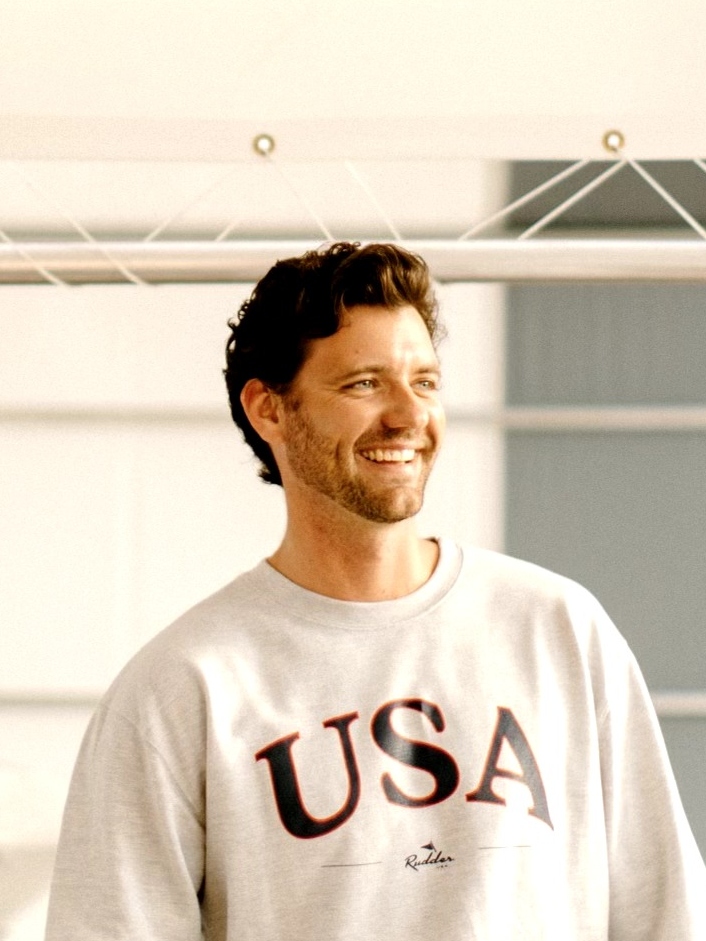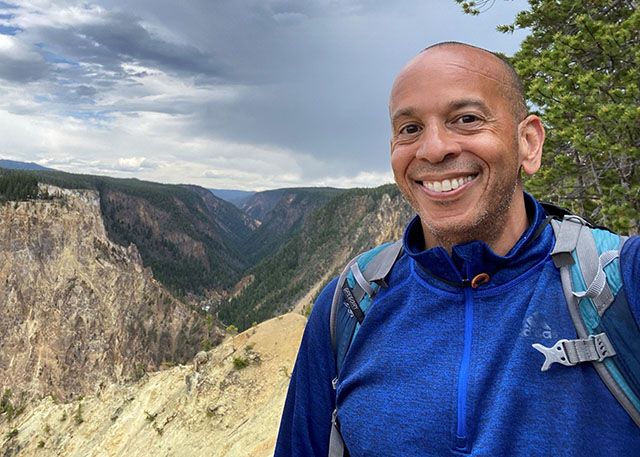Education at the Heart of South Africa Experience
From Inside USD -- When Colby Edson registered for a 2013 summer study abroad course, one that took him to Cape Town, Durban and Johannesburg for his first trip to Africa, he knew it had the potential to be something extraordinary.
It didn’t disappoint.
“Getting the opportunity to explore and invest in such a diverse culture with such a raw and fresh history was like nothing else,” said the USD junior business finance major. “It was truly the greatest, most fulfilling experience of my college career.”
Three weeks isn’t a lot of time, but the impact can still last a lifetime.
Edson was one of 16 students taking a course examining the historical and contemporary issues in South Africa with USD professors Michael Williams (Political Science) and James Gump (History), both of whom have extensive knowledge of South Africa. The course, especially because it was taught there, added meaning and purpose to the discussions. But, perhaps, the best way to apply this newfound knowledge came when the majority of students extended their trip for a special service opportunity.
Williams, a 1992 USD alum and professor since 1999, took 11 students, including Edson, to the tiny village of Makuleke, located on the northern border of South Africa. There, the USD contingent toured the village, met Denise Ortiz, founder of the nonprofit organization Sharing to Learn, and played soccer with a group of high school students, known as the Equalizers, who are part of a large movement to get the government to act on and provide equal educational opportunities.
“The most impactful part of the trip for me was, without a doubt, staying a week in the village of Makuleke,” Edson said. “It’s really been left to fend for itself by the government. Its schools are falling apart, often times the people there have no access to water and the tribal hierarchy regularly acts as a hindrance to positive progression within the village. People there live in conditions that far surpass the American definition of poverty, yet they are some of the happiest, most joyful people I’ve ever encountered in my life.”
Seeing it firsthand can’t be erased. It’s a reality that can’t be substituted. It causes the depth of a person’s empathy to swell. It brings everyone to a level of common understanding.
“Each native South African I encountered spoke from behind eyes that had seen more than their fair share of pain and sorrow, but spoke words of joy, compassion and hope,” Edson observed. “It was both difficult and humbling to see a country that was still wading through the disastrous wake of apartheid, but the South African people’s resilience and determination to create a better future for themselves was inspirational.”
Professor’s Passion for South Africa
Williams has seen and studied for years what Edson is only now beginning to understand. Williams was on an undergraduate study abroad trip in London in January 1991 and was part of a seven-person theater play. While there, he befriended two cast members — one from Zimbabwe, another from Kenya. What he didn’t realize at the time was that it would open a door to his future.
“They said ‘You should come with us on tour this summer in Africa. ‘I said, sure, call me when you do it.’ In March (1991) they called and said they had tour dates set in Zimbabwe, South Africa and Swaziland at multi-racial schools, traveling by land rovers and they would be camping. All I needed was to buy a plane ticket,” Williams recalled. “I worked at the (USD) deli then, so I saved my money and got a plane ticket.”
He went into the trip “knowing nothing, except for what I’d read in history books.” What he used and what he returned with was an open, curious mind to absorb everything.
“Africa as a whole just got under my skin,” he said. “It’s a beautiful place landscape-wise, but the endemic poverty and all of its social and economic issues provides a wonderful dichotomy between beauty and injustice and suffering.”
Williams’ trip in 1991 came a little more than a year after Nelson Mandela was released from prison and three years before he became South Africa’s president. South Africa was ripe with uncertainty.
“I remember going to bars and meeting people my age, whites and blacks, and they literally didn’t know if their country was going to be in a civil war within two years, if they’d have democracy or if they’d still have apartheid. I just found this fascinating, especially when reflecting on race relations in the United States. Even with the progress that’s been made, things in the U.S. are not perfect in terms of race relations. I was thinking about that and about the challenges that South Africa would have to go through just to get past apartheid.”
Williams was hooked. “I came back to USD with the Africa ‘bug.’ I definitely knew I wanted to go back. Meanwhile, I looked for every course I could find at USD about Africa. I found two, both taught by Jim Gump. He was my intellectual introduction.”
Williams graduated from USD and went on to earn a JD at American University’s law school and his PhD from University of Wisconsin-Madison in Political Science. His passion for South Africa hasn’t waned. He did in-person doctoral research in 1998-99. He’s written numerous articles about law and politics in South Africa and, in 2010, published a book, Chieftaincy, the State, and Democracy: Political Legitimacy in Post-Apartheid South Africa.
Williams, as a USD professor, has added nearly 15 years of research, insight and multiple visits to South Africa.
The most promising connection he’s made started in 2011. Williams read about Denise Ortiz’s nonprofit organization, Sharing to Learn, and her work in the Makuleke village. Curious to see it while he was in South Africa, Williams set aside one day, driving seven hours to get there. He met Ortiz and others in the village and quickly assessed the feasibility of bringing USD students there. He learned about education resources and existing challenges. Sold on what he heard, Williams and seven USD students successfully traveled there last summer to start a meaningful, purposeful relationship.
“For the first time in my career, I feel my passion for improving the lives of others and a passion for intellectual understanding have overlapped,” he said.
Going Forward: The Future
This summer’s trip to Makuleke, while shorter than last year, still showcased Williams’ desire. Alumnae Nadalie Malsam and Amanda Mathies, both on the 2012 trip, returned, too.
“The fact we came back with new students and a few they already knew and loved, legitimized us in the village,” he said. “I’m getting to know the chief’s son better, we’re working with Denise, Nadalie and Amanda are there now, assisting at the community library, and helping with nonprofit data gathering and research for grants to help Denise. We’d like to help her get a big chunk of funding so she can relax awhile and we can do some programs.”
Colby Edson appreciated his trip to South Africa. It likely won’t leave his mind any time soon. He agrees with Williams’ encouragement for students “to get out of their comfort zone, go places where people live much different lives.”
Edson is ready — to go back.
“I’d hop on a plane tomorrow if it meant that I got to spend another week or more living and learning alongside the South African people, especially my new friends in Makuleke. I’d highly encourage any USD student who is passionate about investing in different people and cultures to participate in this program next summer.”
— Ryan T. Blystone
Photos courtesy of Michael Williams



